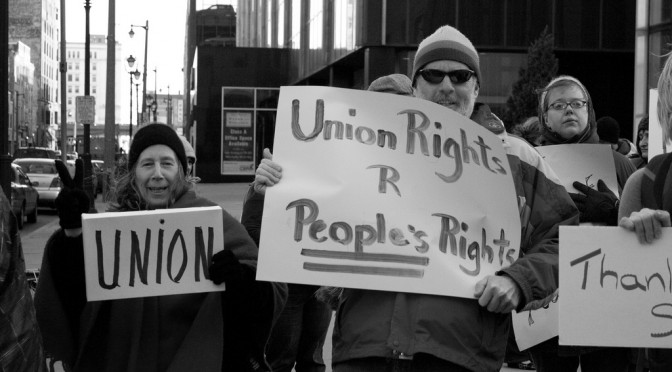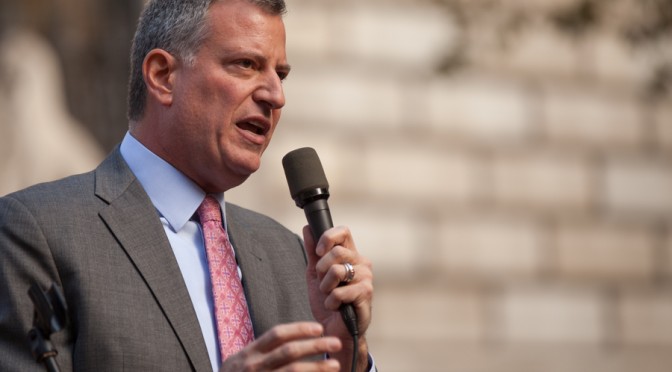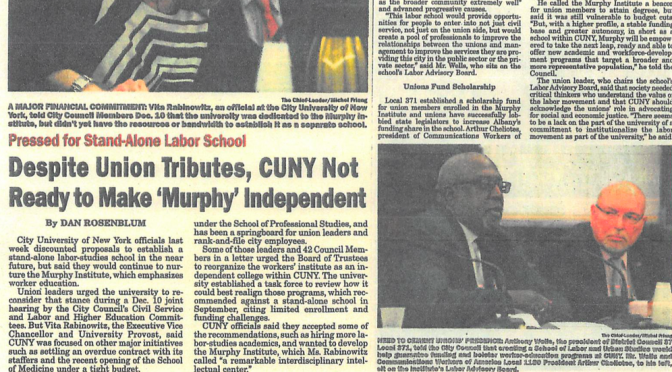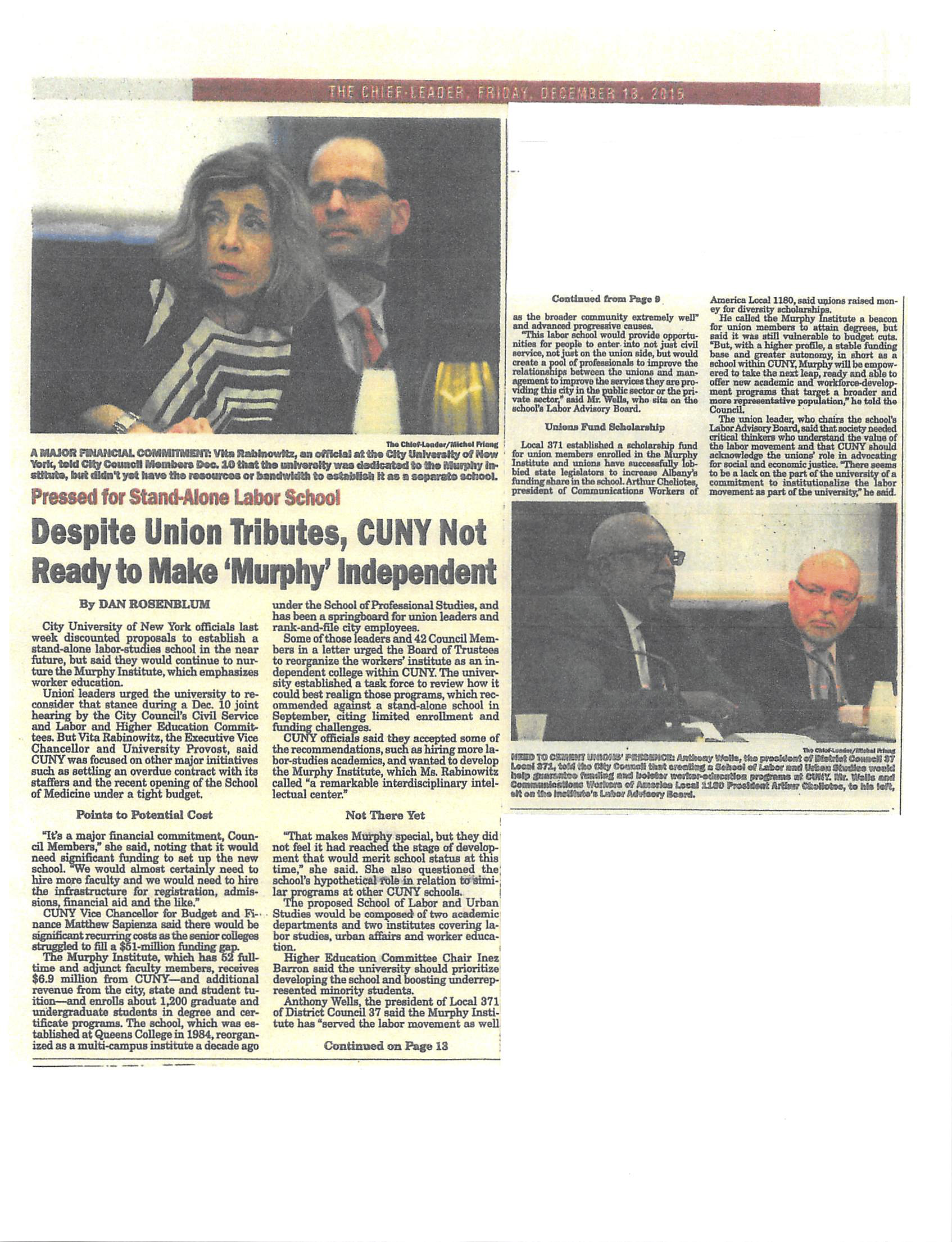By Penny Lewis
The Friedrichs case argued before the Supreme Court yesterday will decide the near-term fate of public sector unions in the United States. In this and the next blog post I am mulling over the roots and implications of this case; in the next I want to consider what it means for us here at CUNY and our current contract fight.
The basic issue facing the Court is whether the “agency fees” collected by public unions from public workers violate the first amendment rights of non-union workers. The plaintiffs are making the case that, because bargaining in the public sector involves issues like merit pay, public workers who do not support the positions their unions take on such issues are being forced to pay for political speech with which they disagree. (For more background on the case, please look here and here.)
The ideological — and more importantly, material — roots of this argument lie in the decades long assault launched by conservative groups, their corporate funders and their political allies to discredit and dismantle the collective power of workers.
Continue reading Friedrichs Case, Unions and the Public Sector









